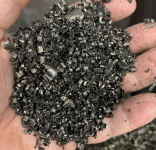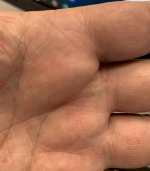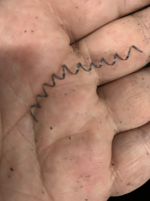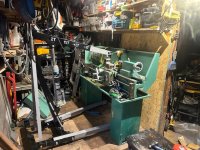Mad Mike
Well-known member
There are lots of things you can do on a lathe. It's not just round stock, you can do some milling operations as well as long as you can grab the part in a chuck.I don’t even know what one would make with that thing? Something round I guess…
Although the seller did tell me you could make square items with it.
Simple operations:
turning - add grooves, part bars to length, taper
facing - cleaning, flattening, sanding and polishing
threading - add a threaded end to a part, make threaded rod, make lead screws (vices, slides)
tapping - threaded holes
Drill - anything you can chuck
Boring - for ID's bigger than a drill can handle.
Knurling


























